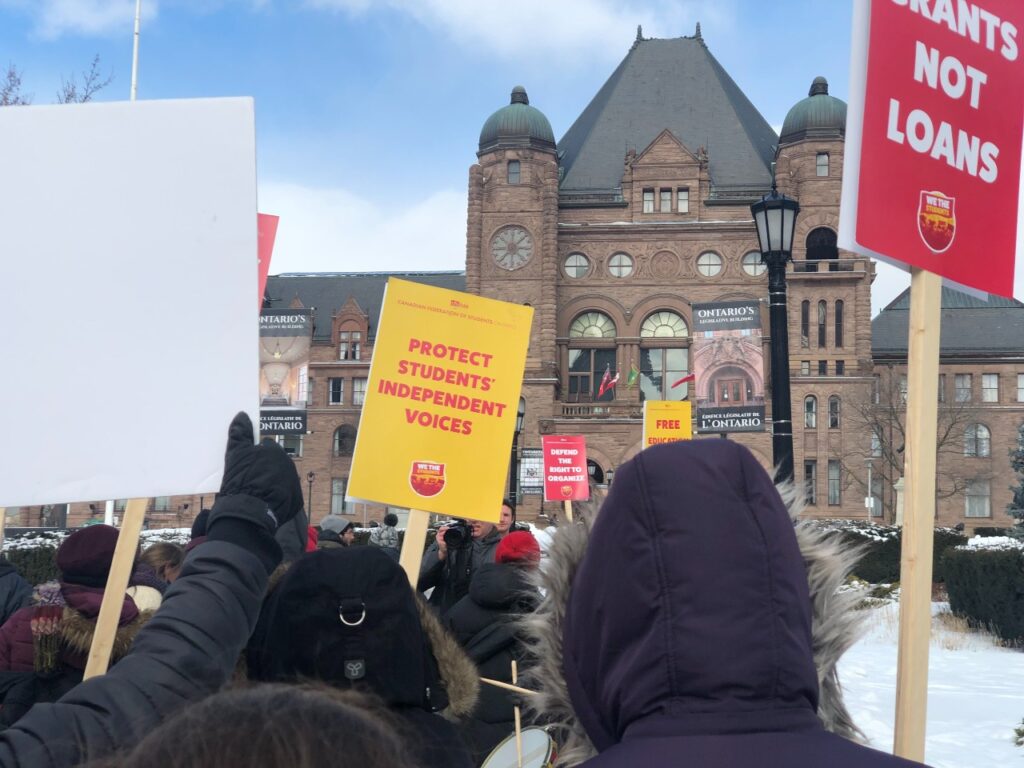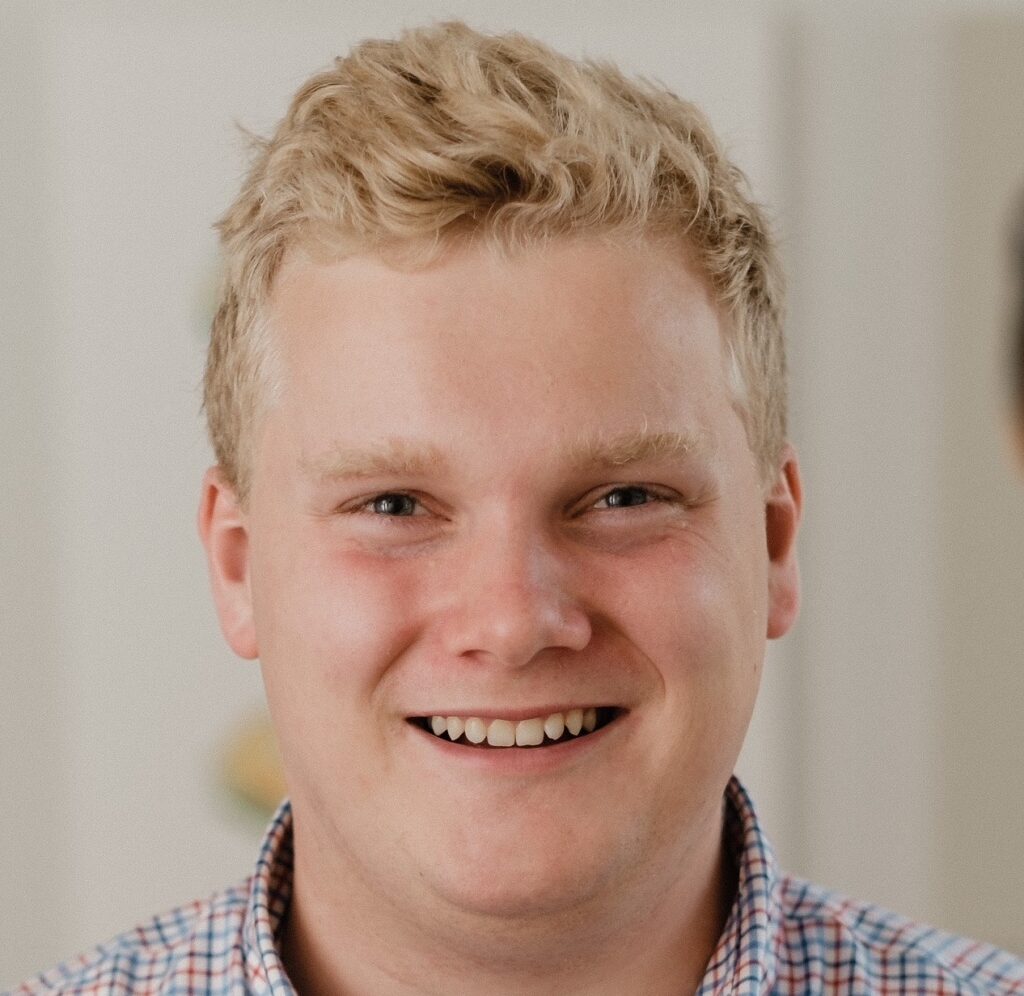
By Eli Ridder
We’re two years out from the next provincial election, and students by-and-large are worried about what’s to come next, after the pandemic and with a conservative government in charge.
Sean Mitchell was campaigning for Guelph’s Liberal candidate in the 2018 provincial election but on June 6, the candidate was defeated. On the same night an hour away in Toronto, Aaron Posner was working as the chief scrutineer for a Progressive Conservative candidate that ended up winning.
As the night went on, Liberals losing and PC party candidates winning was a trend that played out across the province, bringing an end to over 15 years of Liberal rule and a new era of PC Party government under Premier Doug Ford. With it came fresh uncertainty for post-secondary students who had largely supported the Liberals and New Democrats.
Across the province, many students became concerned with what a new Queen’s Park would look like. It didn’t take long to find out; the next year saw the PCs make deep cuts to student grants, introduce optional student fees that impacted student unions and campus publications, and, most recently, revealed plans to tie funding to performance metrics.

“The provincial government that we have right now is Progressive Conservative and it has been openly hostile to students and student success on a number of occasions,” the 22-year-old told Scribe Magazine. Mitchell, a student leader at the University of Guelph, explained that the Ford government “has been reckless”, from its handling of the pandemic to the precariousness of student life.
“I think the general population is recognizing the harm that the provincial government has done during their time in office. And I think they’ll pay the price for that in the next election,” Mitchell said, with a tone of determination.
During the first onslaught of the coronavirus pandemic in the spring, Ford experienced a popularity boost detailed by polling, worrying some progressives like Mitchell who wanted Ontarians to remember the premier’s deep cuts to education before the lockdowns began.
For Posner, the Ford government has been a standard-bearer of responsibility and financial common sense. “The previous McGuinty-Wynne administration spent dollars we didn’t have that resulted in a huge deficit,” the 21-year-old business student told Scribe.
Posner argued that the changes made to OSAP were to increase fairness for the people most financially vulnerable. Posner said he had a friend that lived in a $2 million house and drove an expensive BMW who had more of his tuition covered by provincial grants than Posner did under the previous Liberal government.
The young conservative said the changes the PC government made to OSAP brings an end to unnecessary grants and puts more money in the pockets of the students that need it to survive year-to-year. “Do I think it was a good announcement, maybe not. Do I think it was a necessary announcement? It was.”
Posner, who worked the PC MPP he campaigned for in the year following the June 2018 election, was adamant that the PC Party will work for students. Over the next two years leading up the next election, “I think we’re going to see the provincial government take an Ontario-first approach: We’re going to see the provincial government put students first and our next generation first.”
New Democrat Chris Glover is the critic for post-secondary education, a crucial member of the opposition to the Ontario government’s efforts on students. He’s not new to the role and has long advocated for universities and colleges since he completed his Ph.D. on student debt. In his view, neither the Liberals nor Progressive Conservatives have offered much for students and alleviating the stresses of post-secondary financial stress.
“It’s grossly unfair that this generation is not getting the same opportunity for affordable education that was available to my generation,” the member of provincial parliament said, pointing to drastic tuition increases over the past three decades.
“I don’t have much hope for the Conservative government, in the next few years, providing real relief for students.”
While post-secondary students have suffered what they say is a barrage of attacks by the Ford government, there have been moments that point to a ray of hope for the years ahead. In December of 2019, nearly a year after the Student Choice Initiative was revealed and four months after it came into play at campuses across the province, the Canadian Federation of Students – Ontario won a legal fight to reverse it. It was a victory that showed students can win, and set a precedent for the future.
A better future for students, however, will come down to whether they vote or not in the upcoming 2022 provincial election. In comparison to Ottawa, “the provincial government has a much larger role in our everyday lives,” Mitchell said. “And I think that if we recognize that, we recognize the need for us to vote provincially is even greater than it is federally. That just means to me that we need to be better organized.”